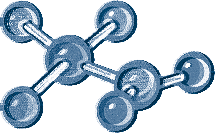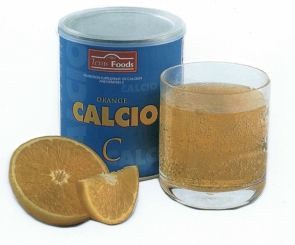
 Improving
Brain Function
Improving
Brain Function
As
we age, many of us notice a loss of mental sharpness and think that this
is just part of getting older, but aging cannot explain the current epidemic
of severe mental deterioration. The fact is the human brain is highly susceptible
to living in a modern 'developed' society. Poor lifestyle and diet, ongoing
stress, smoking and environmental pollutants all damage fragile brain cells.
Alcohol consumption and many pharmaceutical drugs can cause severe memory
loss. More and more children are showing behavioral and learning difficulties
linked to pollutant exposures, and such difficulties can persist into adulthood.
Altzheimers has become so common it is now accepted as a 'dis-ease' of
the elderly.
People who abuse their bodies through poor diet and lifestyle can experience mental fall-off as early as their 30's, and for many others the problems become really noticeable during their mid 40's. These people who perform the worst for their age group are at an increased risk of severe cognitive deterioration in later life, unless they make a commitment to rebuilding brain function.
The brain uses 20% of the body's energy.
It requires constant oxygen which it receives from the bloodstream and
uses approximately 25% of all oxygen inhaled. Brain physiology is highly
complex and has the power to influence everything we do.
A healthy diet that attends to the specific needs of the brain may help neurons to achieve the most desirable chemical balance naturally. The brain being a hungry organ depends first of all on a healthy liver and gastrointestinal tract to use food well: to properly absorb nutrients and deliver them to the brain, to remove toxins and to maintain proper immune system activity.
 Because
the brain cells are largely composed of fat, the right kinds of fat in
the diet are one of the most critical elements in creating and maintaining
brain health. The same precious Omega-3 fatty acids that promote healthy
hearts can also help our brains. Primary sources of those health-giving
fats are fatty cold-water fish including salmon, mackerel, anchovies, sardines,
herring and Atlantic sturgeon. Eat fish a minimum of three times a week.
Canola, olive and flax-seed oil are good plant sources of Omega-3 fatty
acids, with flax seeds, which can also be ground and added to foods, being
the supreme, most recommended source.
Because
the brain cells are largely composed of fat, the right kinds of fat in
the diet are one of the most critical elements in creating and maintaining
brain health. The same precious Omega-3 fatty acids that promote healthy
hearts can also help our brains. Primary sources of those health-giving
fats are fatty cold-water fish including salmon, mackerel, anchovies, sardines,
herring and Atlantic sturgeon. Eat fish a minimum of three times a week.
Canola, olive and flax-seed oil are good plant sources of Omega-3 fatty
acids, with flax seeds, which can also be ground and added to foods, being
the supreme, most recommended source.
DHA, one of the Omega-3 fatty acids, is the primary structural fatty acid in the gray matter of the brain, which promotes communication between brain cells by allowing synapses to remain soft and functional. By helping build myelin sheaths around nerve fibers, DHA facilitates chemical message transmittal. It helps the brain monitor mood and memory as well. As a component of breast milk, DHA promotes higher intelligence in children.
The B-complex vitamins work in chorus to promote brain and immune system health by protecting nerve tissue against oxidation, enhancing memory and insulating nerve cells. Your body requires B vitamins to produce many neurotransmitters. Besides meat, there are many good vegetarian sources of B vitamins, including whole grain pasta, grains, rice, wheat germ and nuts.
 Because
the brain in made up largely of fatty acids, it is susceptible to oxidation
damage caused by free radicals - highly reactive molecules that attack
and damage cell membranes, protein and even our genetic code - and in doing
so bring about age and 'dis-ease'. Antioxidants are nutrients which combat
and neutralize free radicals. The primary weapons in this ongoing fight
are vitamins C and E, carotenoids and the mineral selenium. Many foods
are rich sources of antioxidants. Carotenoids are found in dark orange
and dark green leafy vegetable, such as carrots, sweet potatoes, kale and
spinach. Vitamin C is found in citrus fruits and vegetable like broccoli
and peppers. Vitamin E is found in seeds and nuts as well as soybeans and
vegetable oils. Selenium is present in seafood, grains and Brazil nuts.
Supplementation or reinforcement of antioxidants is recommended since they
are the major police force of the body, thought to deflect virtually all
chronic 'dis-eases' including heart disease, cancer, cataracts, Parkinson's
and the aging process itself.
Because
the brain in made up largely of fatty acids, it is susceptible to oxidation
damage caused by free radicals - highly reactive molecules that attack
and damage cell membranes, protein and even our genetic code - and in doing
so bring about age and 'dis-ease'. Antioxidants are nutrients which combat
and neutralize free radicals. The primary weapons in this ongoing fight
are vitamins C and E, carotenoids and the mineral selenium. Many foods
are rich sources of antioxidants. Carotenoids are found in dark orange
and dark green leafy vegetable, such as carrots, sweet potatoes, kale and
spinach. Vitamin C is found in citrus fruits and vegetable like broccoli
and peppers. Vitamin E is found in seeds and nuts as well as soybeans and
vegetable oils. Selenium is present in seafood, grains and Brazil nuts.
Supplementation or reinforcement of antioxidants is recommended since they
are the major police force of the body, thought to deflect virtually all
chronic 'dis-eases' including heart disease, cancer, cataracts, Parkinson's
and the aging process itself.
Breakfast is the most important meal of the day. Start out the day with a meal that is low in fat, high in protein and low in carbs and sugar. This will help you achieve peak mental performance during the day. Specifically eat protein first and then complex carbohydrates in your meal. The goal is to have the amino acid L-Tyrosine found in protein-rich foods reach the brain first, followed by L-Tryptophan, an amino acid whose relaxing effects are strengthened by carbohydrates.
Caffeine can improve mental alertness but limit its use to prevent addiction. It can leave you with unpleasant withdrawal symptoms such as stress, anxiety and irritability, and can be detrimental to overall health. Alcohol slows brain function and should be avoided if high mental performance or concentration is required.
A lifestyle which includes ample relaxation time, meditation, proper exercise and plenty of sleep all help to regenerate and invigorate our mental state.
In short, the way we eat can not only help us be more intelligent, alert and successful in mental activities, but also more balanced in our emotions and behavior. The way to build a foundation for a healthy brain is with a healthy diet and supplementation.
Phosphatidylserine - phospholipid substance that is a major building block for brain membranes. Proven to boost energetic and electrical activity across the entire brain.
Phosphatidylcholine - found in soy products and lecithin. Readily converts to acetylcholine, the memory neurotransmitter in the brain.
L-Glutamine - used as an energy source by the brain and is converted into glutamic acid, essential for cerebral function, and GABA, an important neurotransmitter.
Acetyl L-Camitine - essential for converting fatty acids into metabolic energy, capable of readily crossing the blood brain barrier where it promotes the synthesis of acetylcholine.
Hyperzine A (club moss) - functions as a cholinesterose inhibitor which prevents the breakdown of acetylcholine.
Vinpocetine (periwinkle) - increases metabolism of the brain by increasing blood flow, increases the rate at which the brain cells produce ATP (energy) and speeds up the use of glucose and oxygen in the brain.
Co Q10 - plays a critical role in the production of energy in every cell of the body. Increases tissue oxygenation.
Ginko biloba - herb which increases blood flow and oxygen to the brain.
Gotu kola - herb which energizes
the brain and increases alertness (great replacement for coffee drinkers).
 .
.
Courtesy
of Altnewtimes,
Reproduced
with permission.